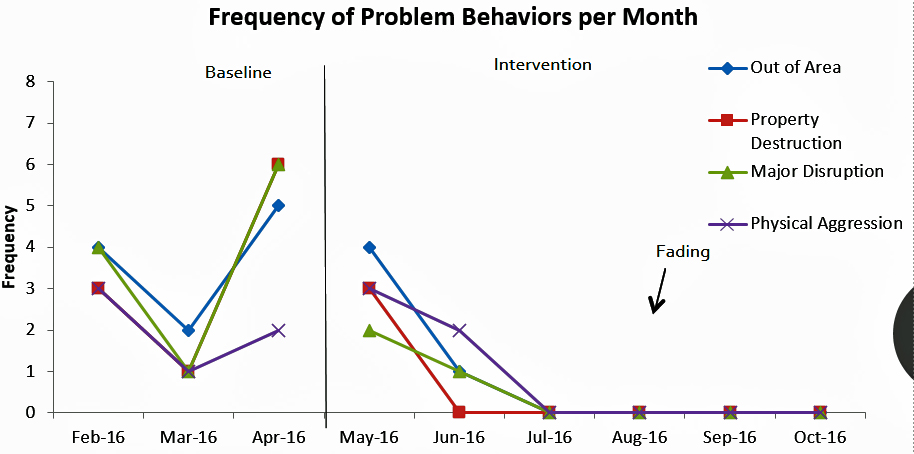FABA Recommendations for How Behavior Analysts and RBTs Can Work with Problem Solving TeamsTriage: Facility-wide data collection should guide the identification of youth with highest priority needs for support by the problem solving team. Problem solving team collaboration: Behavior analysts should collaborate with the problem solving team, including mental health professionals, to develop highly effective interventions. The team can select only the most effective, ethical intervention procedures. These may include proper supervision procedures for youth who may engage in high risk behaviors. The problem solving team would restrict the use of aversive or coercive procedures or those that may increase some problem behaviors (e.g., withholding attention after problem behaviors.) Coaching: Behavior analysts should provide training and follow up coaching to support positive direct care staff interactions with youth throughout the day. Goal Setting, Data Recording, and Progress Monitoring: The problem solving team should collaboratively set measurable goals to monitor the progress of youth. This includes interpretation of data trends and modifications to intervention procedures (as needed).
Collaboration with Physicians: Data are shared with physicians and psychiatrists to support progress monitoring and timely adjustments to psychotropic medications Peer review: When youth are not making adequate progress, the problem solving team can seek additional expert peer review from other professionals who can assist with intervention design and troubleshooting. Expert peer reviewers can be identified at regional and state levels. |


